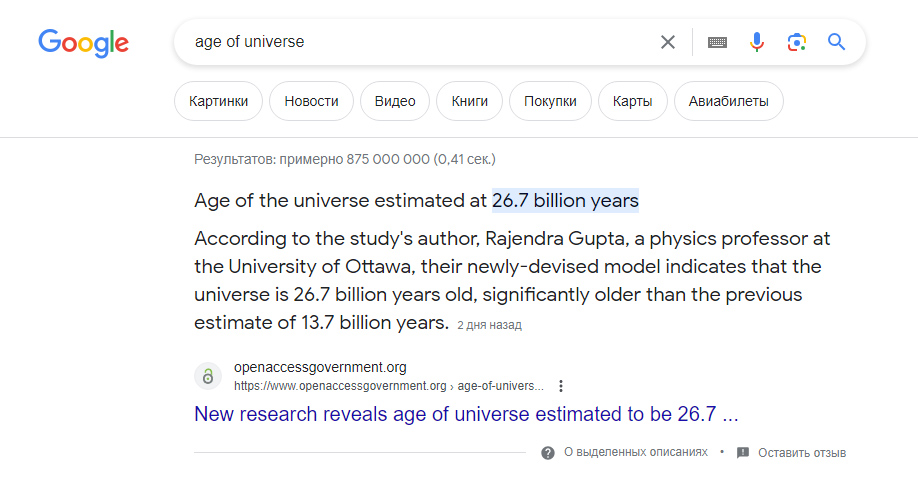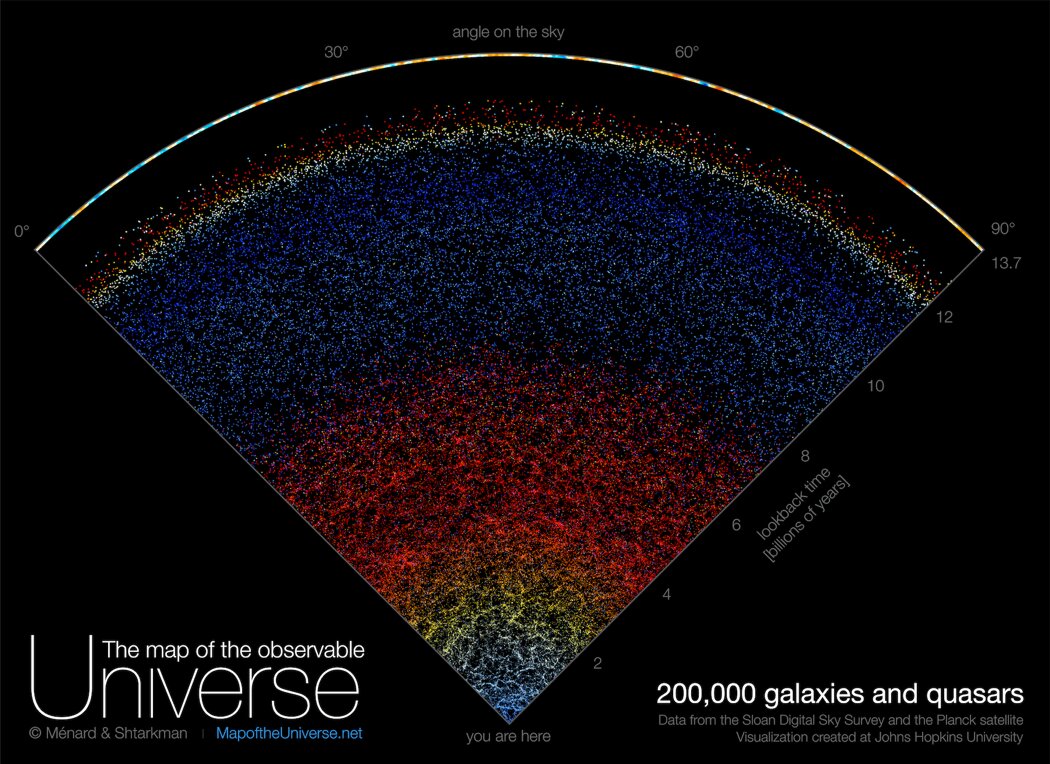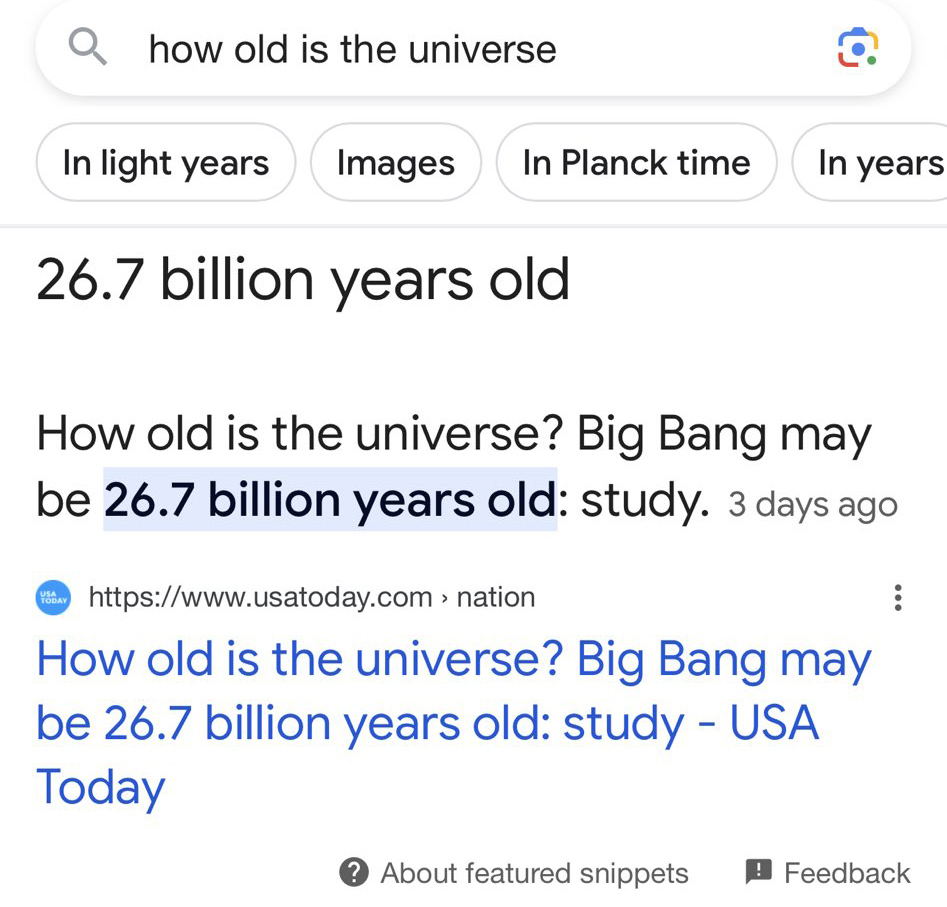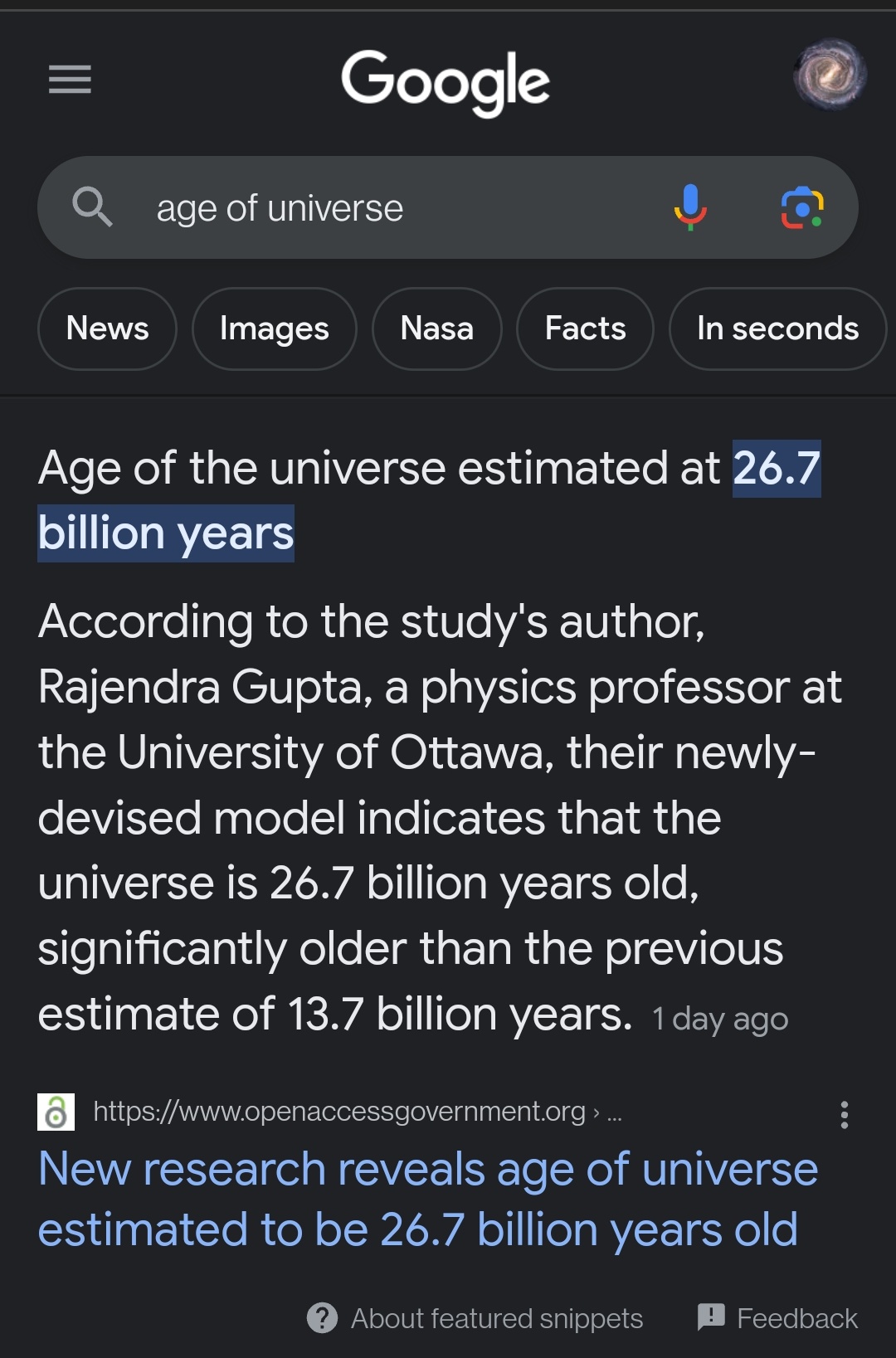The search results on the Google website in response to the English query “age of the universe” have angered many astronomers, accusing it of misinformation. The issue arises from the fact that in response to this query, the search engine started providing an answer of 26.7 billion years, which contradicts the widely accepted scientific estimation.

Controversy over the Age of the Universe
It all started a few days ago when physicist Rajendra Gupta from the University of Ottawa published his article. In it, he reviewed the standard theory of how our Universe evolved and came to the conclusion that it could be twice as old as previously believed.

Gupta based his conclusion on the assumption that photons might lose some energy during their long journey through space. This effect would lead to a change in their frequency, observed by us as a redshift of the spectrum of celestial bodies. Consequently, galaxies are much farther away than previously thought, and the age of the Universe is almost twice the existing estimates, amounting to 26.7 billion years.
According to Gupta, this could explain why many early galaxies at the edge of the observable Universe appear so large and well developed. If his interpretation is correct, they had billions of years more time to evolve.
Science and “Sensational” Hypotheses
Despite Gupta’s intriguing publication, it is essential to understand that it is just one article written by one person. The current estimation of the age of the Universe at 13.8 billion years is based on decades of research involving tens of thousands of scientists using the world’s best telescopes and repeatedly cross-verifying each other’s results.

Is it possible that they are all deeply mistaken? Undoubtedly, in the history of science, there have been cases where widely accepted theories were proven incorrect, and new concepts replaced them. However, each time, this happened gradually as more data accumulated, demonstrating the fallacy of the existing paradigm.
Moreover, claims of such extraordinary magnitude require equally extraordinary evidence, which will take, at the very least, years to obtain and confirm. Only then can we talk about existing models being incorrect. As we have mentioned, there have indeed been such examples in the history of science. However, it is crucial not to forget that for every fundamental theory that has successfully passed verification, there are thousands of “sensational” hypotheses that have not received any confirmation and are now forgotten.
Google Against Astronomers
Clearly, such intricacies do not particularly interest most news websites, which prioritize maximum clickbait headlines. This is precisely what happened with Gupta’s article, which many media outlets presented as an established fact.

All of this brings us to Google. The search engine picked up the news about the age of the universe and started displaying the figure of 26.7 billion years with a reference to Gupta’s article in response to relevant queries. After this became known, many scientists effectively accused Google of misinformation.
https://twitter.com/mustapipa?ref_src=twsrc%5Etfw%7Ctwcamp%5Etweetembed%7Ctwterm%5E1681421280912855041%7Ctwgr%5Ee7768af85cc3b2bd4aa7dd33335b0805cd360ab6%7Ctwcon%5Es1_&ref_url=https%3A%2F%2Fdev.universemagazine.com%2Fastronomy-proty-google-yak-istoriya-z-vikom-vsesvitu-ogolyla-klyuchovi-problemy-internetu%2F
It is possible that, amid the uproar, Google will soon correct its search results. However, in any case, the story with the age of the universe vividly demonstrated the peculiarity of the search engine’s algorithms, where fresh headlines take precedence over the accuracy of the information presented.
It is also worth noting that Google’s response depends on the language of the query. Many users have sarcastically pointed out that the age of the universe appears to be 26.7 billion years only for English-speaking users, while for all other inhabitants of the Earth, it remains 13.7 billion years. Google’s search results also heavily rely on the form of the query. For example, if you enter “universe age,” you will receive an answer ranging from “13 to 14 billion years,” whereas with the query “age of universe,” the answer is 26.7 billion years.

In any case, the story of the universe’s age serves as a good example of how information spreads on the internet and the principles behind current search algorithms, ready to present any information with a catchy headline and unverified content as an established truth. It is quite possible that if Gupta’s article had claimed that the Earth is square, Google would also be displaying it as the answer to queries about the shape of our planet.
All of the above brings us back to an age-old truth. When searching the internet, it is essential to always double-check the source of information rather than relying on the search engine’s first link as an indisputable fact.

